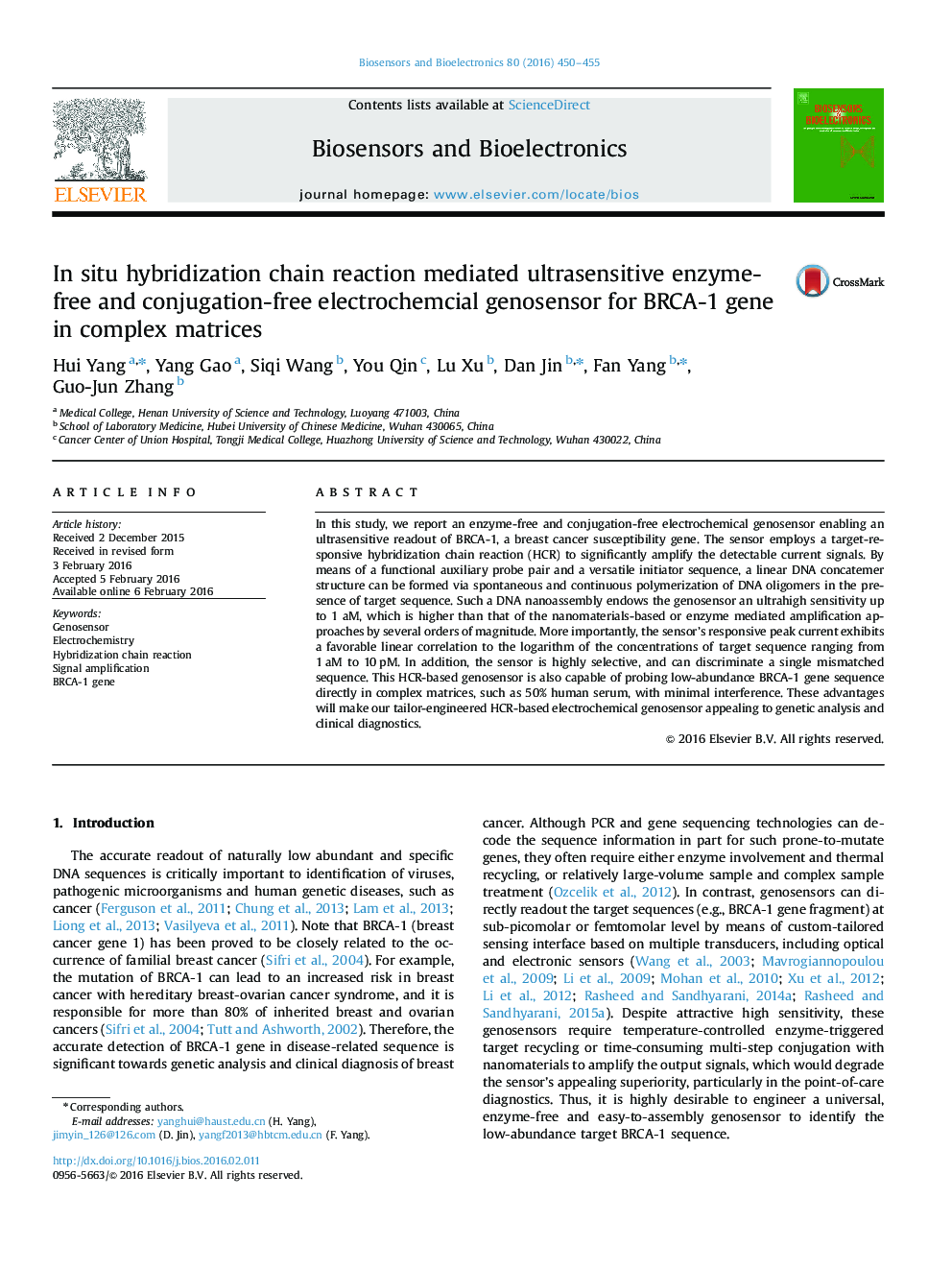| Article ID | Journal | Published Year | Pages | File Type |
|---|---|---|---|---|
| 7230887 | Biosensors and Bioelectronics | 2016 | 6 Pages |
Abstract
In this study, we report an enzyme-free and conjugation-free electrochemical genosensor enabling an ultrasensitive readout of BRCA-1, a breast cancer susceptibility gene. The sensor employs a target-responsive hybridization chain reaction (HCR) to significantly amplify the detectable current signals. By means of a functional auxiliary probe pair and a versatile initiator sequence, a linear DNA concatemer structure can be formed via spontaneous and continuous polymerization of DNA oligomers in the presence of target sequence. Such a DNA nanoassembly endows the genosensor an ultrahigh sensitivity up to 1 aM, which is higher than that of the nanomaterials-based or enzyme mediated amplification approaches by several orders of magnitude. More importantly, the sensor's responsive peak current exhibits a favorable linear correlation to the logarithm of the concentrations of target sequence ranging from 1Â aM to 10Â pM. In addition, the sensor is highly selective, and can discriminate a single mismatched sequence. This HCR-based genosensor is also capable of probing low-abundance BRCA-1 gene sequence directly in complex matrices, such as 50% human serum, with minimal interference. These advantages will make our tailor-engineered HCR-based electrochemical genosensor appealing to genetic analysis and clinical diagnostics.
Related Topics
Physical Sciences and Engineering
Chemistry
Analytical Chemistry
Authors
Hui Yang, Yang Gao, Siqi Wang, You Qin, Lu Xu, Dan Jin, Fan Yang, Guo-Jun Zhang,
